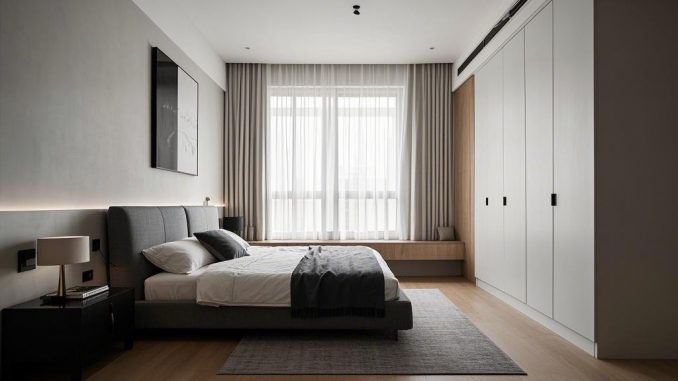
In many cultures, mirrors are common household items, but when it comes to placing them in the bedroom, there are different opinions, especially from the perspective of Feng Shui.

From a Feng Shui point of view, mirrors in the bedroom can be a bit tricky. Mirrors are considered to have a strong yang energy in Feng Shui. While yang energy is necessary for life and vitality, too much of it in the bedroom, a place that should be calm and yin – dominant, can lead to an imbalance.

One of the main concerns is the relationship between mirrors and the bed. In Feng Shui, it is generally not recommended to have mirrors directly facing the bed. When a person sleeps, their energy, which is relatively weak at that time, can be easily disturbed. Mirrors, with their reflective properties, can reflect this weak energy back, causing the person to feel restless, leading to problems like insomnia and even long – term physical and mental issues. It is as if the mirror is “stealing” the person’s vital energy.
Moreover, mirrors in the bedroom can also affect marital relationships. Mirrors are thought to represent an increase in either the male or female “star” energy in the room. Whether it is enhancing the husband’s or wife’s energy, it is considered unfavourable for the marriage. In a marital bedroom, the harmony and stability of the relationship are crucial, and the presence of mirrors may introduce an element of disharmony.
If there is a need to have a mirror in the bedroom, for example, if there is a dressing table, Feng Shui offers some solutions. One way is to use a desktop mirror instead of a traditional standing mirror. When you need to use the mirror, you can take it out from the drawer, use it, and then put it back. Another method is to cover the mirror with a curtain when it is not in use. This way, the mirror is not continuously emitting its reflective energy.
Additionally, mirrors should not be placed in certain positions according to Feng Shui. For instance, a mirror should not be placed directly opposite the door of the bedroom. In Feng Shui, the door is like the mouth of the house, through which energy enters and exits. If a mirror is placed there, it is believed to reflect the incoming good energy back out, blocking the flow of positive chi into the bedroom.
Nor should the mirror be opposite the toilet door in the bedroom. Such a placement is thought to cause problems in the relationship between husband and wife. It may lead to unnecessary quarrels and even affect their physical health.
Mirrors should also not be embedded in the ceiling of the bedroom. If it is, it is said that the people living underneath will experience a loss of energy, wealth, and health. There is also a saying in Feng Shui: “Mirrors facing down, constant fights; mirrors facing up, family business does not prosper.”
In terms of the impact on health, the reflected light from mirrors is considered a kind of “bad” ray. When it shines on the human body for a long time, it can cause neuralgia, poor sleep quality, and other adverse reactions. In the bedroom, which is supposed to be a place of rest and recovery, such negative effects should be avoided as much as possible.
In conclusion, while mirrors are useful in our daily lives for dressing and personal grooming, when it comes to placing them in the bedroom, we should be cautious according to Feng Shui principles. We need to balance the need for a mirror with the maintenance of a harmonious and healthy living environment in the bedroom. Although Feng Shui is not a science in the strict sense, some of its principles, such as the importance of a balanced energy environment, can be relevant to our understanding of a comfortable living space.

Leave a Reply